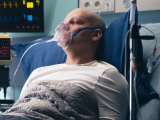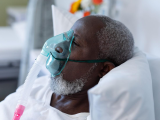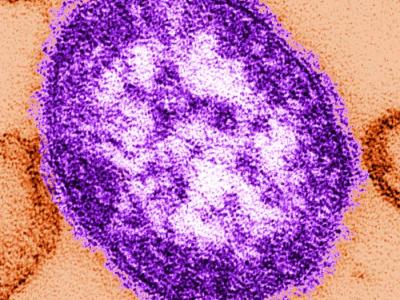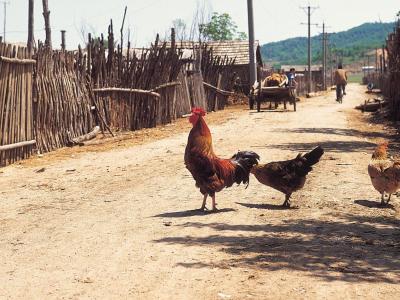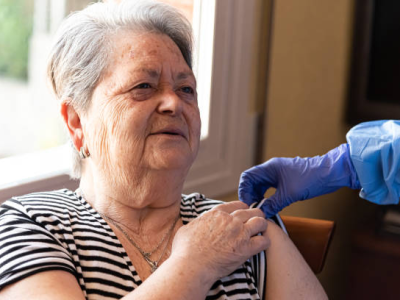University of North Carolina–Chapel Hill investigators report today that COVID-19 hospitalization risk was reduced by 84% among Paxlovid (nirmatrelvir and ritonavir) recipients in a large, diverse healthcare system during January to August 2022, when the Omicron strain was dominant.
The study appears in the Journal of Antimicrobial Chemotherapy. Paxlovid is authorized for use in US patients 12 years and older at risk for developing severe outcomes from COVID-19 infections. In early clinical trials, the use of the antiviral drug was associated with a relative risk reduction of 89% of disease progression to severe illness.
Patients seen in outpatient settings
In the study, the authors used electronic health records for 44, 671 clinic outpatients who had a positive SARS-CoV-2 polymerase chain reaction (PCR) test during the study period. The main outcome was hospitalization for COVID-19 within 28 days of a positive PCR test.
The average age was 47 years, 39% of patients were male, 62% White, 24% Black, 6% Hispanic, and 8% of other or unknown races/ethnicities. Fifty-one percent had received two or more vaccine doses before the study period.
A total of 4,948 (11%) received Paxlovid, and 201 patients were hospitalized (0.4%) within 28 days of their positive PCR test.
Paxlovid use was one of the strongest predictors of avoiding hospitalization, and only 3 patients (0.1%) in the group were hospitalized for infection. The 28-day cumulative incidence of hospitalization for people who received Paxlovid was 0.06% (95% confidence interval [CI], 0.02% to 0.17%) compared to 0.52% (95% CI, 0.46% to 0.60%) among non-recipients.
Paxlovid users more likely to be vaccinated
Patients who were treated with Paxlovid were twice as likely to have received at least two doses of COVID-19 vaccine (rate ratio [RR] 2.1; 95% CI, 2.0 to 2.3). They were also more likely to be 70 years or older (RR 2.2; 95% CI, 2.1 to 2.4).
Paxlovid-treated patients were also less likely to be Black or Hispanic, or live in a low-income neighborhood.
After Paxlovid, vaccination was associated with a lower risk of hospitalization. Hospitalizations were reduced in patients who had received at least two vaccine doses versus no vaccine (age-adjusted hazard ratio, 0.37; 95% CI, 0.28 to 0.49).
This study adds to the growing body of evidence supporting the effectiveness of nirmatrelvir/ritonavir in preventing hospitalization due to COVID-19.
"This study adds to the growing body of evidence supporting the effectiveness of nirmatrelvir/ritonavir in preventing hospitalization due to COVID-19. Several observational studies have reported that nirmatrelvir/ritonavir is associated with reductions in COVID-19 hospitalization and death," the authors wrote.

